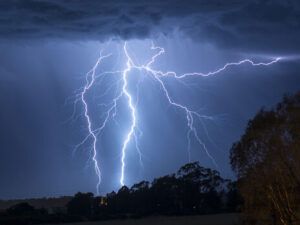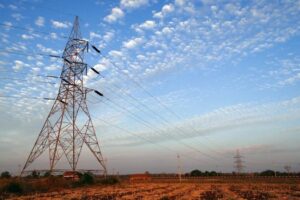
The Internet Association of Ukraine has proposed to the National Bank a transparent and legal mechanism for blocking phishing domains. This is stated in a letter from the IAU to the NBU.
Currently, in accordance with the regulations of the NCU, which was implemented by the Order of January 30, 2023 No. 67/850, the mechanism for blocking domains is as follows:
– The NBU creates and provides the National Coordination Center for Cybersecurity under the National Security and Defense Council (hereinafter referred to as the NCCC) with a list of phishing domains;
– The NCCC places this list on its “transit” server, from which providers are obliged to receive it;
– Internet service providers are obliged to configure their DNS servers in such a way that Internet users are redirected to the NCCC landing page without their knowledge and consent in case of requests for domains from the list;
Thus, if an Internet user intends to visit a domain included in the list, he or she will be redirected to the NCCC server.
Section 9 of the Regulation provides that the NCCC server collects and stores detailed information about Internet users who have been redirected to this server, namely:
When a user navigates to a landing page, the System stores technical information, including the date and time, IP address (subnet) from which the transition is made, domain name or URL of the phishing page to which the transition is made, user-agent, etc., and unspecified government agencies are granted access to the above information.
Thus, the NCCC unlawfully collects, stores, uses and disseminates confidential information about a person, such as information that discloses details of the person’s actions on the network (which domain was intended to be visited, the date and time of the visit attempt, the IP address from which the domain was visited).
What the EBA suggests
In a letter to the National Bank regarding the phishing domain filtering system, the EBA proposes that the NBU introduce a legal and transparent mechanism for blocking phishing domains.
It is as follows:
– The NBU compiles and constantly updates the list of phishing domains (as it is currently doing);
– The NBU provides Internet providers with access to this list from its server (without using a third-party “transit” server);
– Internet service providers voluntarily download this list, having the opportunity to send to the NBU a reasoned refusal to block a particular domain, which will reduce the likelihood of erroneous blocking of domains that are not phishing;
– if an Internet user tries to visit one of the domains on the list, he or she is redirected to a landing page hosted by his or her provider, which solves the problem of unlawful violation of the confidentiality of user information.

A thunderstorm has started in Kiev, according to the website of the Hydrometeocenter.
In connection with this, I (yellow) level of danger is declared in the capital.
Also thunderstorm is expected in Kiev, Zhitomir, Vinnitsa, Rivne, Ternopol, Chernivtsi, Volyn, Lviv, Zakarpattia and Ivano-Frankivsk regions. In the Carpathian highlands on Friday – thunderstorm with squalls.
Quotes of interbank currency market of Ukraine (UAH for 1 pln, in 01.04.2023-30.04.2023)

Source: Open4Business.com.ua and experts.news
Quotes of interbank currency market of Ukraine (UAH for €1, in 01.04.2023-30.04.2023)

Source: Open4Business.com.ua and experts.news
Quotes of interbank currency market of Ukraine (UAH for $1, in 01.04.2023-30.04.2023)

Source: Open4Business.com.ua and experts.news

Ukraine in May exported about 41,000 MWh, while importing half as much – about 20,000 MWh, according to published data on the website of the continental European network of system operators ENTSO-E.
Electric power was exported to Moldova, amounting to 23.3 thousand MWh and to Poland – 17.6 thousand MWh.
In the last week of May, after the announced shutdown of some units, there were no exports except for a few hours during certain days, and the transmission system operator, NEC Ukrenergo, did not auction any capacity for exports at the end of May, except for a few hours on certain days.
Imports came from Slovakia – about 18,000 MWh and from Moldova – about 2,000 MWh (the last few days of May data for Moldova are not displayed on the ENTSO-E website – ER). At the same time, it has increased considerably since May 20, almost six times compared to the first half of the month.
At the same time, exports decreased three times compared with the first two weeks of May.
At the same time in May, due to the growing demand for exports and restrictions on their implementation, traders for the first time began to pay for exports to Moldova and Poland (along the line KAES-Zheshuv) – UAH 1.8 million and UAH 0.5 million respectively. Also 1.3 million UAH were paid for the section for imports from Slovakia on certain days.
As reported, exports of electricity, which was resumed in April after it was stopped in October, amounted to 89.7 thousand MWh for the month. Most of the electricity was exported to Moldova – over 40 thou MWh, another 30.4 thou MWh went to Poland and 19.2 thou MWh to Slovakia.
However, exports to Slovakia lasted only four days, having been suspended since April 21 at the initiative of the Slovak transmission system operator.
The section to Slovakia for 4 days brought to Ukrenergo about 17 mln hryvnia. The NERC, Ukrenergo and the Ministry of Energy are resolving the issue of resuming exports to Slovakia.
Electricity imports in April amounted to about 4 thou MWh – 3.8 thou MWh from Slovakia (a third less than in March) and 0.1 MWh from Moldova (in March there were 1,541 MWh).